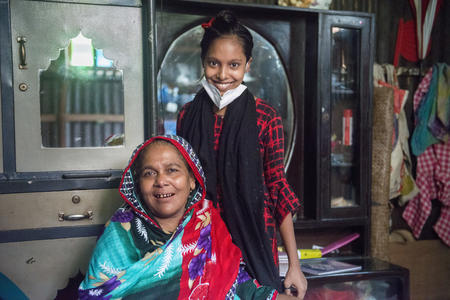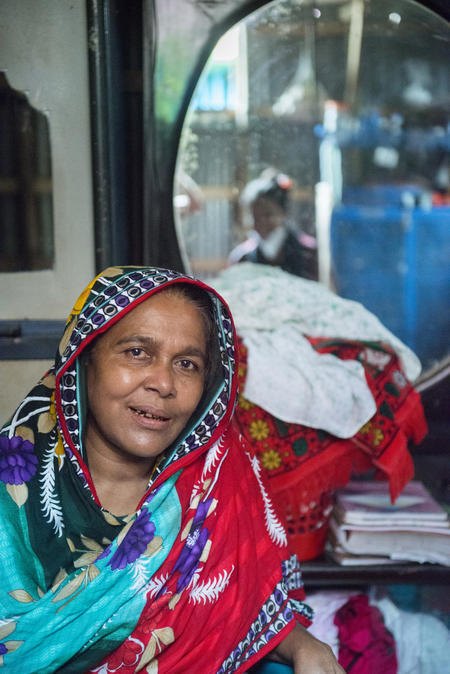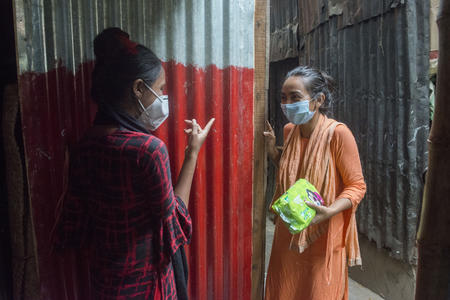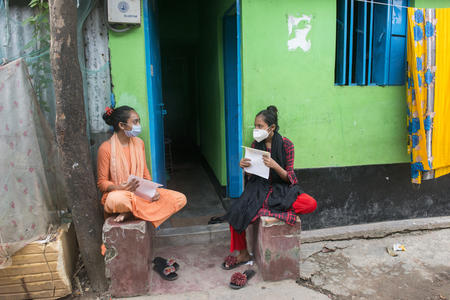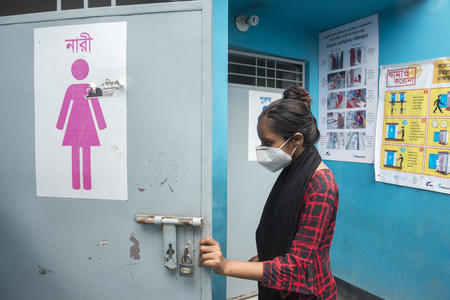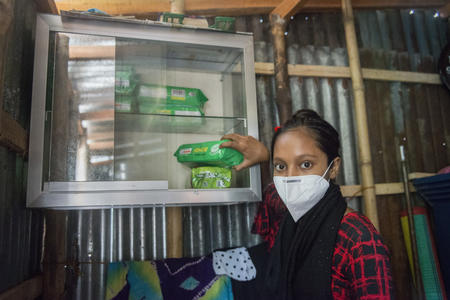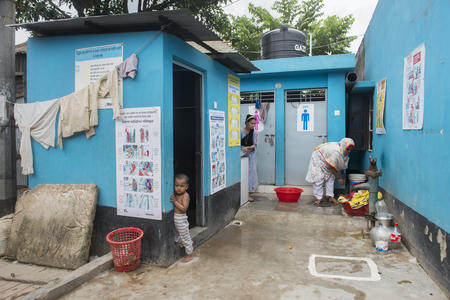Abu Hena Rumi | The Youngest Change Agent

The 14 year- old- girl, Abu Hena Rumi is one of the youngest change agents and an entrepreneur under the project titled ‘Addressing the WASH crisis in Mirpur.’ The project is funded and supported jointly by WaterAid Bangladesh and Lindex.
The teenage girl lives with her parents in a slum in Kalabagan, Bauniyabadh, Kalshi, Mirpur 11, Dhaka, Bangladesh. Last year, she was selected as the change agent by the local community mobiliser and received training on improving water, sanitation and hygiene measures in her community. The knowledge and skills she acquired through training made her into practice.
To live a healthy life, Rumi started giving lessons to her mother about the necessity of hygiene measures in the household. She strives to teach WASH behaviours in her community. The teenage girl went door-to-door to promote hygienic behaviour in her slum and approached to her relatives and friends about the necessity of clean water, decent toilet and good hygiene facilities. Rumi started selling sanitary pads to girls in her community to ensure availability and promote menstrual health and hygiene.
At a very young age, Rumi convinced people to change their hygiene behaviours. Not only she gained recognition but also received respect and acceptance in her community. She was admired for her hard work and compassion towards her community. She said, “My parents encouraged me to help others. What makes me happy to see people living a healthy life. Besides my study, I promote clean water, decent toilet and good hygiene in my community.
I am happy to help one or more family members with WASH services.” Before, we did not have any source of clean water for drinking and cooking. Also, there were no separate toilets for women and girls. We would always feel uncomfortable when menstruating. The prevalence of poor menstrual hygiene in the community was a struggle.
With no facilities of taking bath in open, Rumi said it’s a compromise of her dignity. Handwash was never in practice in the slum. However, after the clean water supply and access to a safe toilet were built in the community, it was a big relief for Rumi and her community.
“We were given training on sustainable access to WASH services and maintaining well-being and dignity for a better future.
We started to store water containers with covers and sanitize the water storage. The modern toilet facilities have changed the lives of the community people. Rumi said we never imagined such a spacious toilet, specially designed for women and children and people with disabilities.
The girls in the community can now dispose of their sanitary napkins in the dustbin that is placed in the toilet. Rumi and her friends can maintain personal hygiene and cleanliness for the running water provided in the toilet. The girls in her community can finally heave a sigh of relief now that a clean washroom is available for everyone.
Rumi is also working as a community volunteer and involved in raising awareness in the slum on the prevention of COVID-19 . With four more volunteers and 38 change agents, Rumi distributed health messages among the slum dwellers and provided posters, flyers, leaflets and hygiene kits in 2200 households. We go around every day and help people to raise awareness on preventing the spread of the virus, which is unfeasible in the overcrowded slum.
Round the clock, Rumi promotes cleanliness in her community. As handwashing is the first line of defense to fight against Covid-19, Rumi monitors the handwashing devices in the slum and takes the responsibility to maintain the handwashing station. I regularly check the devices that if it is workable or not and if the soapy water runs out, I refill it,” says Rumi.
Rumi believes that access to clean water, decent toilet and good hygiene is important for a better living and livelihood. Handwashing maintaining the correct steps and frequency of handwashing with water, and soap can prevent the spread of the virus, said Rumi
